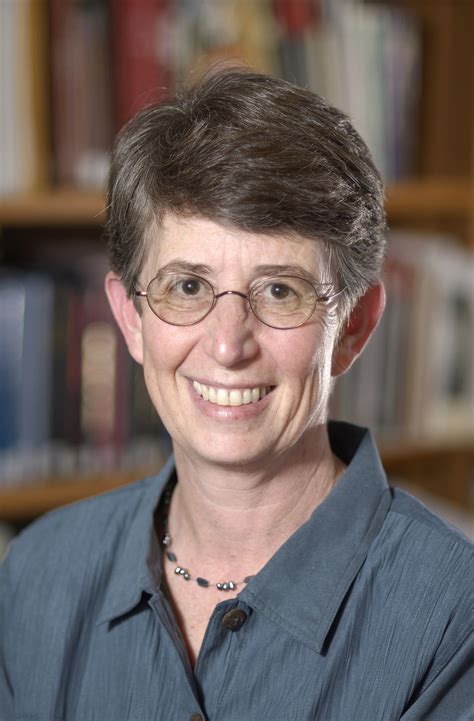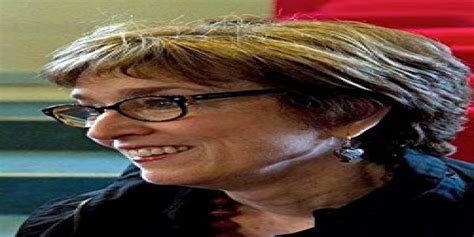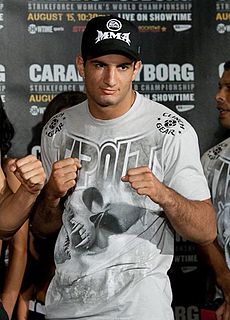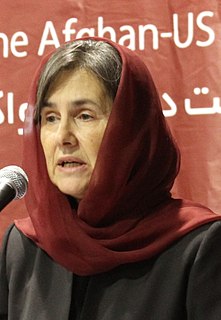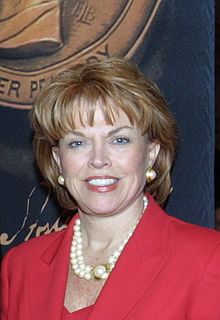A Quote by Nazanin Boniadi
My parents realized the dangers of raising a daughter in a social, political, and legal climate that was growing increasingly oppressive toward women and girls. Although they fled to London when I was just three weeks old, the challenges facing women's rights in Iran became ingrained in my social consciousness.
Related Quotes
I was born in Tehran at a time when women's rights were deteriorating at a rampant rate. My parents didn't want to raise their daughter in a social, political, and religious climate that was growing increasingly oppressive toward women and girls, so they emigrated to London. But the struggle of the Iranian people was permanently etched in my social consciousness from a young age.
Feminism is a belief that although women and men are inherently of equal worth, most societies privilege men as a group. As a result, social movements are necessary to achieve political equality between women and men, with the understanding that gender always intersects with other social hierarchies.
The dream for many millennial women is to make a difference as social or political entrepreneurs. They are using the social media and marketing tools they have mastered to empower less fortunate women and direct them onto career tracks that women have traditionally avoided, like science and technology.
The biblical assertion that women are created in God's image and Boaz's advocacy for Ruth and Naomi necessarily mean women, then and now, have inherent God-given rights. This surely means the church should be at the forefront of advocating for women's rights - not merely political and legal rights, but as in the case of Boaz moving beyond the letter of the law to exceed how any culture regards women.
The issue has two dimensions. One is the legal dimension and the other one is the issue at the realpolitik. [In the] legal realm, we believe in equal rights for all people in all nations. If Israel, the United States, Russia, Pakistan, other countries, China, have the right to have a nuclear program and nuclear bomb, Iran, too, must have that same right. Now, at the realm of realpolitik, because there is a global consensus against Iran, and because there are all manner of dangers facing Iran, I am opposed to this program.
I was born in Iran, my parents are Armenian. We fled from Iran to the Netherlands when I was eight years old. We had a lot of family and friends in Iran, so it was hard to leave, especially for my parents. But we managed to settle well in the Netherlands, after a year in refugee camps. But I understood it was a process.
As Elders, we are fully committed to the principle that all human beings are of equal worth. You will see that we highlight equality for girls and women - not just women's rights. That is important as girls, especially adolescent girls, have been almost invisible in debates on equal rights. Yet it is in adolescence that events can have a huge effect on a girl's life.
I understand why some women/girls/ladies don't want to be women-identified 'cuz it totally complicates your band identity and no one seems to pay much attention to the music or what you're doing. We have chosen to be girl-identified (although Billy isn't a girl!), because we want to encourage other women/girls to play music. When I was growing up, I found it discouraging to have all these women in bands not wanting to address the issue of gender...we're interested in what women are doing.
The nature of the state is one thing, but there are other major challenges - what it will take to tackle the issues of social corruption, for example, social justice, and the economic system - and what are the future challenges when it comes to equality between the citizens, in particular in the field of the job market and equal opportunity for men and for women? This is at the centre of the question that is the Arab Awakening.
The ratio of boys to girls is bad in three big countries in Asia: China, Vietnam, and India. It's worst in the north of India, where there's horrendous poverty. The number of girls in many of these places is so low that it has social consequences. You get young men without jobs and without women, and this leads to chaos and political danger. But the south of India is very different.

